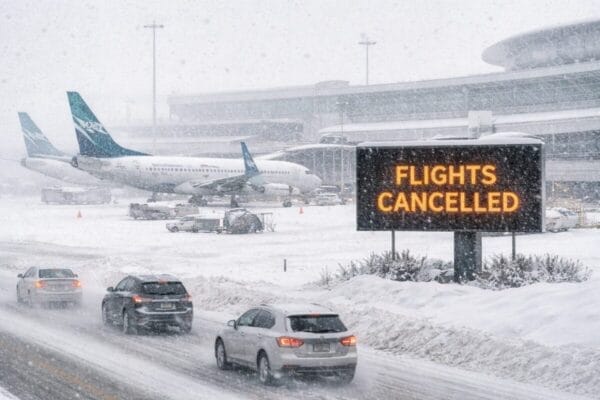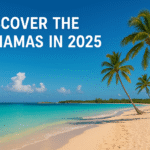With the holiday travel season approaching, the Government of Canada has released updated travel advisories for several popular destinations across Central America and the Caribbean. Countries affected by the warnings include Mexico, Costa Rica, El Salvador, Nicaragua, Honduras, Jamaica, Belize, and Guatemala.
The new advisories, issued ahead of winter 2025, highlight concerns over increased crime, political instability, and social unrest. While these countries remain highly sought-after vacation spots, Canadian officials are urging travelers to exercise caution, especially in high-risk areas where violence, theft, and unrest are more common.
These advisories do not mean Canadians should avoid traveling altogether but encourage visitors to take necessary precautions, remain vigilant, and stay informed about changing conditions.
Mexico: Safety Concerns in Tourist Hotspots
Mexico remains a top choice for Canadian travelers, with its sun-drenched beaches, Mayan ruins, and vibrant culture. However, rising levels of organized crime have led to targeted advisories.
Authorities report violent clashes in regions such as Culiacán, Mazatlán, and parts of Jalisco, Guerrero, and Tamaulipas. Incidents involving armed groups intercepting vehicles on highways raise particular concerns.
In urban centers and crowded tourist areas, petty theft—including pickpocketing and bag snatching—is widespread. Police corruption has also been flagged as a risk for foreign travelers, with reports of officers soliciting bribes.
Safety Tips: Stick to secure accommodations, avoid isolated areas after dark, use reputable transportation services, and comply if threatened to reduce risks.
Costa Rica: Petty Theft on the Rise
Costa Rica, often praised for its biodiversity and eco-tourism, is now under closer watch due to an increase in petty crime. While violent incidents are relatively rare, tourists have reported frequent pickpocketing and vehicle break-ins, especially near beaches and national parks.
Criminals often target travelers leaving valuables inside vehicles, using devices to bypass locks. Even in bustling capital areas like San José, theft remains a concern.
Safety Tips: Keep valuables out of sight, use secure ATMs, avoid walking alone at night, and store passports and personal documents in a safe place.
El Salvador: State of Exception Brings Risks
El Salvador has drawn interest in recent years for its surf-friendly coastline and cultural heritage. However, since a nationwide “state of exception” began in 2022, tourists face heightened risks.
Security forces have sweeping powers to detain individuals without due process, sometimes including foreigners. Although violent crime has decreased, petty theft and risks at border crossings remain serious issues.
Safety Tips: Carry identification at all times, avoid political discussions, and refrain from visiting border areas after dark.
Nicaragua: Political Tensions Continue
Nicaragua has been under political strain since widespread protests in 2018. Demonstrations, government crackdowns, and restrictions on free speech create a challenging environment for visitors.
Travelers have reported theft and petty crimes in urban areas such as Managua and León. Armed robberies, though less frequent, remain possible in politically charged regions.
Safety Tips: Avoid political gatherings, stay in secure hotels, and remain cautious when moving through cities and rural areas.
Honduras: Gang Activity Creates Travel Risks
Honduras offers natural beauty and Caribbean beaches but is troubled by high levels of organized crime. Cities like San Pedro Sula and Choloma report gang violence, extortion, and armed robberies.
Petty theft in bus stations and markets is also common. Some border areas, particularly near Guatemala and El Salvador, are considered high-risk zones due to drug trafficking routes.
Safety Tips: Avoid non-essential travel to dangerous regions, use reputable transport, and remain alert in crowded areas.
Jamaica: Urban Violence Prompts Caution
Jamaica’s resorts remain popular, but the government has warned about violent crime in Kingston and Montego Bay. Gang violence, armed robberies, and homicides are concerns in specific neighborhoods.
Even within tourist zones, theft at markets and beaches is reported. Travelers are encouraged to remain in secure resorts and avoid unnecessary travel after dark.
Safety Tips: Store valuables in safes, avoid isolated areas, and remain aware of surroundings when attending festivals or markets.
Belize: Gang Violence in Urban Areas
Belize, famous for its barrier reef and Mayan heritage, has seen increased gang-related crime, particularly in Belize City. Tourists are often advised to avoid the Southside due to armed robberies and shootings.
In addition, border regions with Guatemala pose risks due to smuggling and trafficking activities.
Safety Tips: Use guided tours for visits to remote areas, avoid walking alone at night, and stay away from known gang zones.
Guatemala: Crime and Political Unrest
Guatemala’s cultural and natural wonders draw many visitors, but the country struggles with one of the region’s highest homicide rates. Gang-related violence, carjackings, and robberies affect both locals and tourists.
Political demonstrations, often leading to roadblocks and service disruptions, can also escalate quickly. Zones in Guatemala City, such as Zone 18 and Zone 21, are considered particularly dangerous.
Safety Tips: Avoid high-risk districts, keep valuables concealed, use reputable tour companies, and stay updated on local developments.
What Travelers Should Do
While Canada’s travel advisories highlight growing risks, they also emphasize the importance of preparation. Travelers are encouraged to:
- Review updated advisories regularly.
- Avoid unnecessary travel to high-risk areas.
- Choose secure accommodations.
- Maintain awareness of surroundings and avoid confrontation.
Despite challenges, these countries continue to offer unique cultural experiences and natural beauty. With proper precautions, Canadian travelers can still enjoy safe and rewarding vacations in Central America and the Caribbean during winter 2025.
For more travel news like this, keep reading Global Travel Wire















